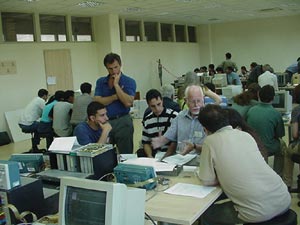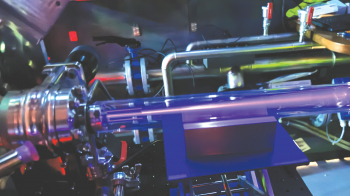
The first International Committee on Future Accelerators (ICFA) regional instrumentation school was held in June at the new instrumentation centre at Istanbul Technical University, Turkey, marking a new departure for this traditional series of schools. ICFA instrumentation schools are normally held every two years to provide education in the field of nuclear instrumentation for students of all nationalities, with the particular aim of giving students from developing countries first-hand access to information and equipment that may not be available in their home institutes. The last school was held in 2001 at South Africa’s national accelerator centre near Cape Town, and 2002 would usually have been an off-year.
A new ICFA initiative, however, aims to establish regional schools that will have the same aims as the main schools, but will use local teachers and target a regional audience. The Istanbul school’s 29 lecturers came from high-energy physics institutes around the world, selected by the ICFA instrumentation panel under the chairmanship of Albert-Heinrich Walenta of Siegen University, Germany. Laboratory demonstrators spent several months before the school preparing experiments on a range of subjects including medical imaging, high-precision spectroscopy and silicon detector applications, so that the 91 students could gain real hands-on experience. Many of the institutes that provided practical demonstrations have donated equipment so that the school can be repeated with local tutors for students from Turkey and surrounding countries.
The Istanbul school was sponsored by the Scientific and Technical Research Council of Turkey, the US National Science Foundation and Department of Energy, the University of Siegen, Fermilab and ICFA. A second regional school organized along similar lines will be held in November at the University of Michoacan in Mexico.







